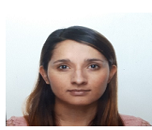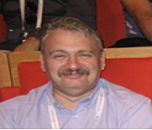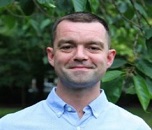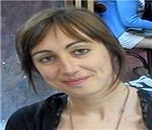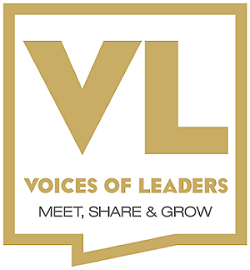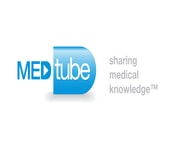Transplant Conference 2023
About Conference
EuroScicon invite all the participants over the earth to take part in 6th International Congress on Transplantation and Medical Surgery On behalf of Transplant 2023 Organizing Committee, we are pleased to invite Academicians, Heart surgeons, Scientists, Expert Surgeons, Doctors, Corporate Cancer Research Professional, Dermatologists, Organ Transplantation Associations, Business Entrepreneurs, Business. Training Institutes, Hospitals and Manufacturing Medical Devices Companies related fields, Teachers, Business delegates and Young researchers across the world to attend Transplant 2023 which is to be held on November 20-21, 2023.The conference highlights the theme “Latest advancements & technologies in Transplantation”.to be held during November 20-21, 2023 and Online Event which cover prompt keynote presentations, Oral talks, Poster presentations and Exhibitions.
This Transplantation Conference will provide an unparalleled prospect to get associated with leading Scientists, Expert Surgeons, Doctors, Corporate Cancer Research Professional, Dermatologists, Organ Transplantation Associations, Business Entrepreneurs, and Business. Training Institutes, Hospitals and Manufacturing Medical Devices Companies related fields, Teachers, Business delegates and Young researchers coming from all over the world. As the theme of the conference relates it serves as a global platform to converse concerning the current developments, recent advances, new approaches and future approaches in the field of transplantation.
This InternationalTransplantConferences scientific program includes Keynote & Plenary talks, Video Presentations, Poster Presentations and E-Posters. Furthermore, oral communications of (post)doctoral junior scientists will be considered. It is the goal of the organizers to make this meeting an event of scientific excellence, attractive to both industrial and academic scientists in Cancer Sciences and it advancements.
EuroSciCon is the longest running independent life science events company with a predominantly academic client base. Our multi-professional and multi-speciality approach creates a unique experience that cannot be found with a specialist society or commercially.
Euroscicon are corporate members of the following organisations
IBMS
British Society for Immunology
Rare Care UK
Opportunities for Conference Attendees
For Researchers &Faculty:
Speaker Presentations
Poster Display
Workshop organizing
For Universities, Associations & Societies:
Association Partnering
Academic Partnering
For Students & Research Scholars:
Poster Competition (Winner will get Best Poster Award)
Young Researcher Forum (YRF Award to the best presenter)
Group registrations
For Business Delegates:
Symposium hosting
Networking opportunities
Audience participation
For Companies:
Exhibitor and Vendor booths
Product launch
Scientific Partnering
Marketing and Networking with clients
Euroscicon organizes International Nutrition Meetings annually across Europe, Austria, Ireland, Germany, France, Liechtenstein, Lithuania, Finland, Luxembourg, Hungary, Italy, Norway, Poland, Denmark, Macedonia, Greece, Portugal, Romania, Czech Republic, Switzerland, United Kingdom, Belgium, Scotland, Latvia, Ukraine, Sweden, Denmark, Spain, Netherlands Russia, Bulgaria, France, with solitary subject of quickening logical revelations.
Why to attend Transplant 2023?
The event focuses on aspects such as Organ Transplantation Surgery, Heart Transplant Surgery & Artificial Heart, Liver Transplantation& Bio Artificial Liver, Tissue Engineering & Regenerative Medicine, Kidney Transplantation& Artificial Kidney Dialysis, Lungs Transplantation & Artificial Lungs and Abdominal Organ Transplantation as well understanding tools to overcome barrier and enable successful data analysis and management.
With members from around the world focused on learning about Organ Transplantation and its advances; this is your best opportunity to reach the largest assemblage of participants from the Organ Transplantation and Artificial Organs community. Conduct presentations, distribute information, meet with current and potential scientists, make a splash with new advancements and developments, and receive name recognition at this 2-day event. World-renowned speakers, the most recent techniques, developments, and the newest updates in Organ Transplantation are hallmarks of this conference. etc.
Target Audience:
Academicians, Heart surgeons, Scientists, Expert Surgeons, Doctors, Corporate Cancer Research Professional, Dermatologists, Organ Transplantation Associations, Business Entrepreneurs, Business. Training Institutes, Hospitals and Manufacturing Medical Devices Companies related fields, Teachers, Business delegates and Young researchers.
SESSIONS AND TRACKS
1.Organ Transplantation Surgery
An organ transplant is a surgical operation in which a coming up short or harmed organ in the human body is evacuated and supplanted with a working one. The gave organ might be from an expired benefactor, a living contributor, or a creature. Now and again a counterfeit organ is utilized. Cadaveric organ gift includes expelling organs from an as of late expired benefactor. Living organ gift includes the gift of one of a matched organ, (for example, kidneys) or a bit of an organ, (for example, a projection of the liver or lung). The benefactor's organ framework is as yet ready to work after the gift. Living benefactors are regularly identified with the patient, yet that isn't generally the case.
2.Kidney Transplantation Surgery
Kidney transplantation or urinary organ transplantation is that the transplantation of an excretory organ into a patient with end-stage uropathy. Excretory organ transplantation is frequently delegated expired contributor (in the past called cadaveric) or living-giver transplantation depending on the flexibly of the benefactor organ. Living-giver excretory organ transplants are extra portrayed as hereditarily associated (living-related) or non-related (living-random) transplants, relying on whether a natural relationship exists between the contributor and beneficiary.
Trades and chains are an exceptional way to deal with grow the living benefactor pool. In 2014 the record for the greatest chain was broken again by a trade including seventy members. Notwithstanding position, transplantation rates differ bolstered race, sex, and pay. An examination completed patients beginning long concoction investigation demonstrated that the socio-segment obstructions to urinary organ transplantation are applicable even before patients are on the transplant list. For example, entirely unexpected totally unique totally extraordinary socio-segment groups downright unique intrigue and complete pre-transplant workup at various rates. Past endeavors to shape honest transplantation arrangements have jogged on patients by and by on the transplantation roll.
- Living-donor excretory organ transplants
- Pre-transplant workup
- Socio-demographic barriers to urinary organ transplantation
- Excretory organ transplantation
Liver transplantation or internal organ transplantation is that the replacement of a unhealthy liver with the healthy liver from another person (allograft). Liver transplantation could be a treatment choice for end-stage disease and acute liver failure, though convenience of donor organs could be a major limitation. The foremost common technique is orthotropic transplantation, during which the native liver is removed and replaced by the donor organ within the same anatomic position because the original liver. The surgical treatment is complicated, requiring careful harvest of the donor organ and meticulous implantation into the recipient. Liver transplantation is extremely regulated, and solely performed at selected transplant medical centres by extremely trained transplant physicians and supporting medical team. The period of the surgery ranges from four to eighteen hours reckoning on outcome. Favourable outcomes need careful screening for eligible recipient, additionally as a well-calibrated live or dead body donor match.
- Recent advances in liver transplantation
- Orthotropic transplantation
- Complications in surgical transplantation
- Mesenchyme stem cell in regeneration in liver transplantation
The prognosis following liver transplant is variable, reckoning on overall health, technical success of the surgery, and therefore the underlying malady method moving the liver. There's no actual model to predict survival rates; those with transplant have a fifty eight likelihood of extant fifteen years. Failure of the new liver happens in 100% to fifteen of all cases. These percentages are contributed to by several complications. Early graft failure is perhaps because of pre-existing malady of the given organ. Others embody technical flaws throughout surgery like revascularization which will cause a non-functioning graft.
- Faster recovery methods after organ transplantation
- Technical flaws during surgery
A bone marrow transplant may be a procedure to switch broken or destroyed bone marrow with healthy bone marrow stem cells. Bone marrow is that the soft, animal tissue within your bones. Stem cells area unit immature cells within the bone marrow that create to any or all of your totally different blood cells. Before the transplant, therapy, radiation, or each is also given. This could be tired a pair of ways: High-dose therapy, radiation, or each area unit given to kill any cancer cells. This conjointly kills all healthy bone marrow that continues to be, and permits new stem cells to grow within the bone marrow. Reduced intensity treatment, conjointly referred to as a mini transplant. Lower doses of therapy and radiation area unit given before a transplant. This permits older individuals, and people with different health issues to possess a transplant.
- Stem cells area unit immature cells
- High-dose therapy
- New stem cells to grow within the bone marrow
- Intensity treatment
Hair transplantation may be a surgical technique that removes hair follicles from one a part of the body, known as the 'donor site', to a bald or hairless a part. The technique is primarily accustomed treat male pattern phalacrosis. During this minimally invasive procedure, grafts containing hair follicles that are genetically proof against hairless (like the rear of the head) are transplanted to the bald scalp. Hair transplantation may be accustomed restore eyelashes, eyebrows, beard hair, chest hair, crotch hair and to fill in scars caused by accidents or surgery like face-lifts and former hair transplants. Hair transplantation differs from skin attachment in this grafts contain the majority of the stratum and derma encompassing the follicle, and lots of little grafts are transplanted instead of Since hair naturally grows in groupings of one to four hairs, current techniques harvest and transplant hair "follicular units" in their natural groupings. Pre-operative assessment and planning.
- Harvesting methods
- Strip harvesting
- Follicular unit extraction (FUE)
- Follicular unit transplant
- Robotic hair restoration
- Types of surgery
- Post-operative care
Blood transfusion is the process of transferring blood or blood products into one's circulation intravenously. Transfusions are used for various medical conditions to replace lost components of the blood. Early transfusions used whole blood, but modern medical practice commonly uses only components of the blood, such as red blood cells, white blood cells, plasma, clotting factors, and platelets. Red blood cells (RBC) contain haemoglobin, and supply the cells of the body with oxygen. White blood cells are not commonly used during transfusion, but are part of the immune system, and fight infections. Plasma is the liquid part of the blood, which acts as a buffer, and contains proteins and important substances needed for the body's overall health. Platelets are involved in blood clotting, preventing the body from bleeding.
- Early Transfusions
- Immune system
- Antigen and antibodies
7.Heart Transplant Surgery & Artificial Heart
A heart transplant removes a damaged or diseased heart and replaces it with a healthy one. The healthy heart comes from a donor who has died. It is the last resort for people with heart failure when all other treatments have failed. The heart failure might have been caused by coronary heart disease, damaged heart valves or heart muscles, congenital heart defects, or viral infections of the heart. Although heart transplant surgery is a life-saving measure, it has many risks. Careful monitoring, treatment, and regular medical care can prevent or help manage some of these risks. After the surgery, most heart transplant patients can return to their normal levels of activity. However, fewer than 30 percent return to work for many different reasons.
- Coronary heart disease
- Congenital heart defects
- Viral infections
- Risk after the heart transplantation
8.Lungs Transplantation & Artificial Lungs
Lung transplantation is a comprehensively acknowledged treatment for some progressed lung illnesses, giving the beneficiaries longer survival and better nature of life. Since the main transplant effectively performed in 1983, more than 40 thousand transplants have been performed around the world. Of these, around seven hundred were in Brazil. Be that as it may, survival of the transplant is not as much as wanted, with a high death rate identified with essential unite brokenness, disease, and ceaseless unite brokenness, especially in the type of bronchiolitis obliterans disorder. New advancements have been created to enhance the different phases of lung transplant. To increment the supply of lungs, ex vivo lung reconditioning has been utilized as a part of a few nations, including Brazil. For cutting edge life bolster in the perioperative period, extracorporeal layer oxygenation and hemodynamic bolster gear have been utilized as a scaffold to transplant in fundamentally sick patients on the holding up list, and to keep patients alive until determination of the essential brokenness after unite transplant. There are patients requiring lung transplant in Brazil who don't get to the meaningful part of being alluded to a transplant focus in light of the fact that there are just seven such focuses dynamic in the nation. It is pressing to make new focuses equipped for performing lung transplantation to give patients some propelled types of lung illness an opportunity to live more and with better personal satisfaction.
Important Keywords: Lungs Transplantation Conferences | Lungs Transplantation Meetings | Lungs Transplantation Events | Artificial Lungs Conferences | Artificial Lungs Meetings | Artificial Lungs Events
9.Eye Transplantation
Corneal transplantation, also known as corneal grafting, is a surgical procedure where a damaged or diseased cornea is replaced by donated corneal tissue (the graft). When the entire cornea is replaced it is known as penetrating keratoplasty and when only part of the cornea is replaced it is known as lamellar keratoplasty. Keratoplasty simply means surgery to the cornea. The graft is taken from a recently dead individual with no known diseases or other factors that may affect the chance of survival of the donated tissue or the health of the recipient. The cornea is the transparent front part of the eye that covers the iris, pupil and anterior chamber. The surgical procedure is performed by ophthalmologists, physicians who specialize in eyes, and is often done on an outpatient basis.
- Corneal grafting
- Penetrating keratoplasty
- Lamellar keratoplasty
Isle transplantation is that the transplantation of isolated islets from a donor exocrine gland into another person. It's associate degree experimental treatment for type 1 diabetes. A exocrine gland transplant is associate degree transplant that involves implanting a healthy exocrine gland (one which will manufacture insulin) into someone UN agency typically has polygenic disease. As a result of the exocrine gland could be an organ, playacting functions necessary within the digestion method, the recipient's native exocrine gland is left in situ.
- Islet cell transplantation
- Exocrine gland transplant
- Pancreas transplantation
- Experimental treatment for type 1 diabetes
- Organ Transplantation Surgery
Important Keywords:
Organ Transplantation Conferences | Organ Transplantation Meetings | Organ Transplantation Events
11.Skin And Face Surgery
Plastic surgery is a surgical specialty involving the restoration, reconstruction, or alteration of the human body. It can be divided into two main categories: reconstructive surgery and cosmetic surgery. Reconstructive surgery includes craniofacial surgery, hand surgery, microsurgery, and the treatment of burns. While reconstructive surgery aims to reconstruct a part of the body or improve its functioning, cosmetic (or aesthetic) surgery aims at improving the appearance of it. Both of these techniques are used throughout the world.
- Aesthetic surgery
- Sub-Specialties
- Burn surgery
- Craniofacial surgery
- Hand surgery
- Microsurgery
- Paediatric plastic surgery
Hematopoietic stem cell transplantation (HSCT) (commonly referred to as bone marrow transplantation) is a medical procedure in the field of haematology and oncology, most often performed for patients with certain cancers of the blood or bone marrow. HSCT is the treatment of choice for people with hematopoietic malignancies, bone marrow failure, and certain types of cancer (e.g., lymphoma) which results in a compromised immune system. The most important factor in the successful outcome of HSCT is that the patient and donor are matched for the Human Leukocyte Antigens (HLA). The level of the matching required varies with the source of stem cells used for HSCT.
- Hematopoietic stem cell transplantation
- Oncology
- Hematopoietic malignancies
- Human Leukocyte Antigens
Intestine transplantation (intestinal transplantation, or small bowel transplantation) is the surgical replacement of the small intestine for chronic and acute cases of intestinal failure. While intestinal failure can oftentimes be treated with alternative therapies such as parenteral nutrition (PN), complications such as PN-associated liver disease and short bowel syndrome may make transplantation the only viable option. One of the rarest type of organ transplantation performed, intestine transplantation is becoming increasingly prevalent as a therapeutic option due to improvements in immunosuppressive regimens, surgical technique, PN, and the clinical management of pre and post-transplant patients.
- Small bowel transplantation
- PN-associated liver disease
- Short bowel syndrome
- Immunosuppressive regimens
General surgeon not just performs medical procedures for a wide scope of basic sicknesses, but on the other hand is in charge of patient consideration previously, amid, and after medical procedure. All specialists must begin their preparation when all is said in done medical procedure; numerous at that point proceed to concentrate on another claim to fame. As indicated by the American Board of Surgery, general specialists are prepared to work on Alimentary Tract (throat and related organs), Abdomen and its Contents, Breast, Skin and Soft Tissue Endocrine System. Likewise, general specialists are relied upon to have information and involvement in: Surgical Critical Care, Surgical Oncology and Trauma.
Medical Students who need to be specialists initially apply to a careful residency program. When they move on from medicinal school they are, authoritatively, a doctor, yet their instruction is not exactly most of the way to culmination now. A careful residency starts in the primary year of residency, which is known as the assistant year, trailed by somewhere around four extra-long periods of careful preparing. This is the preparation all specialists experience on the way to their last careful vocation.
Amid their preparation, general specialists are required to finish 48 weeks of full-time clinical movement. They may total some preparation in another claim to fame, however close to a year might be spent centered assigned to any one careful strength other than general medical procedure.
Toward the finish of the understudy year and four resulting long stretches of preparing, the specialist is completely prepared as a rule medical procedure and would then be able to pick their way to either rehearse in the claim to fame of general medical procedure or to seek after a careful forte, and a few additional long stretches of preparing as careful inhabitant or individual.
- Trauma Surgery/ Surgical Critical Care
- Gastrointestinal Surgery
- Bariatric Surgery
- Breast Surgery
- Podiatry Surgery
- Laparoscopic Surgery
- Acute Care
MARKET ANALYSIS
MARKET ANALYSIS
The global transplantation market size was valued at USD 8.4 billion in 2020 and is expected to grow at a compound annual growth rate (CAGR) of 11.5% over the forecast period. Growing demand for novel tissue transplantation products and organ transplantation for the treatment of organ failure is a major factor contributing to the market growth. Organ failure usually occurs due to various factors, such as serious trauma, loss of blood, poisoning, drug abuse, leukemia, sepsis, and other acute diseases. For instance, diabetes and high blood pressure are the most common causes of end-stage renal disease, where kidney transplant or dialysis are the only treatment options to keep a patient alive. Demand for tissue and organ transplantation, mainly kidney, heart, liver, and lungs, is very high globally. According to the U.S. Department of Health & Human Services, there were around 122,913 patients in the U.S. waiting to receive organs for transplant in 2019. Unhealthy dietary habits, alcohol consumption, and lack of exercise are some other leading causes of organ failure.
According to the U.S. Department of Health & Human Services, in 2019, there were around 43,201 patients waiting for kidney transplants in the U.S. However, only 23,401 kidney transplant procedures were performed. Moreover, after a transplantation surgery, the recipients are prescribed powerful immunosuppressive drugs; thus, increasing their susceptibility to infectious diseases with their immunity being weakened.|
COVID-19 Impact
The COVID-19 pandemic in 2019 engulfed the world. It caused a worldwide halt. The entire global economy was affected. In addition, many people have also lost their lives. Around 252,297,094 cases and 5,091,465 deaths have been reported worldwide so far for COVID-19. The pandemic spread to almost every country in the world. In most industries, the pandemic resulted in some form of loss. As a result of the pandemic, the Transplantation Market also experienced a slowdown. Statista estimates that the Transplantation Market total worldwide revenue stood at approximately US$ 3.94 trillion in 2019. In 2014, the Transplantation Market generated revenues of US$ 5.4 trillion at a record high.
Transplantation essentially involves removal of organ or tissue from one body and placement of the same in the recipient's body, to replace the failed or damaged organ. The human organs such as kidney, lung, liver, pancreas, cornea and skin can be transplanted. Transplants help rebuild healthy body and live healthy life. Advancements in technology have helped increase the success rate of transplantation world over. The substantial rise has been noticed in tissue transplants with advanced products. Besides, advanced software and systems facilitate convenient preservation of tissues and organs.
The Global Transplantation Market is segmented based on Product Type (i.e., Tissue Products, Immunosuppressive Drugs, Preservation Solution), Application Type (i.e., Organ Transplant, Tissue Transplant) and End-User (i.e., Hospitals, Transplant Centers, Others.

